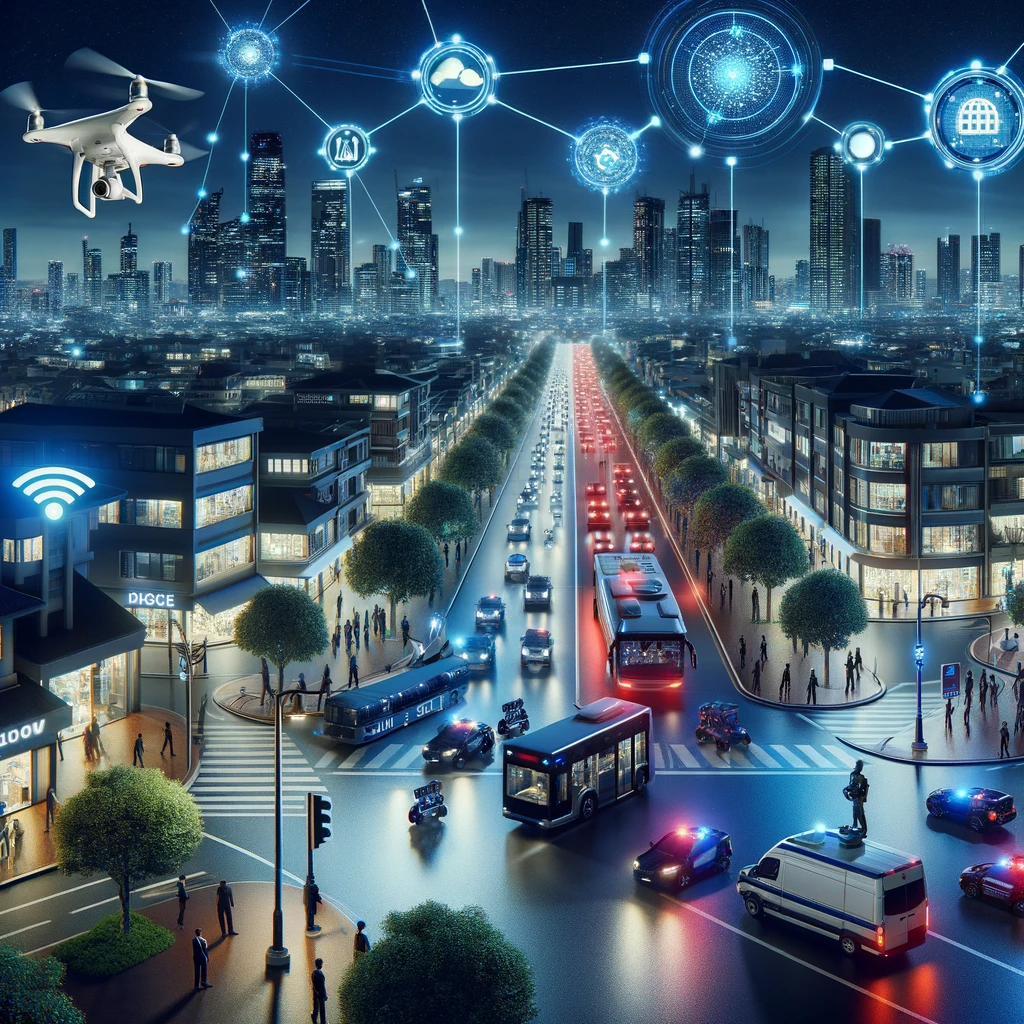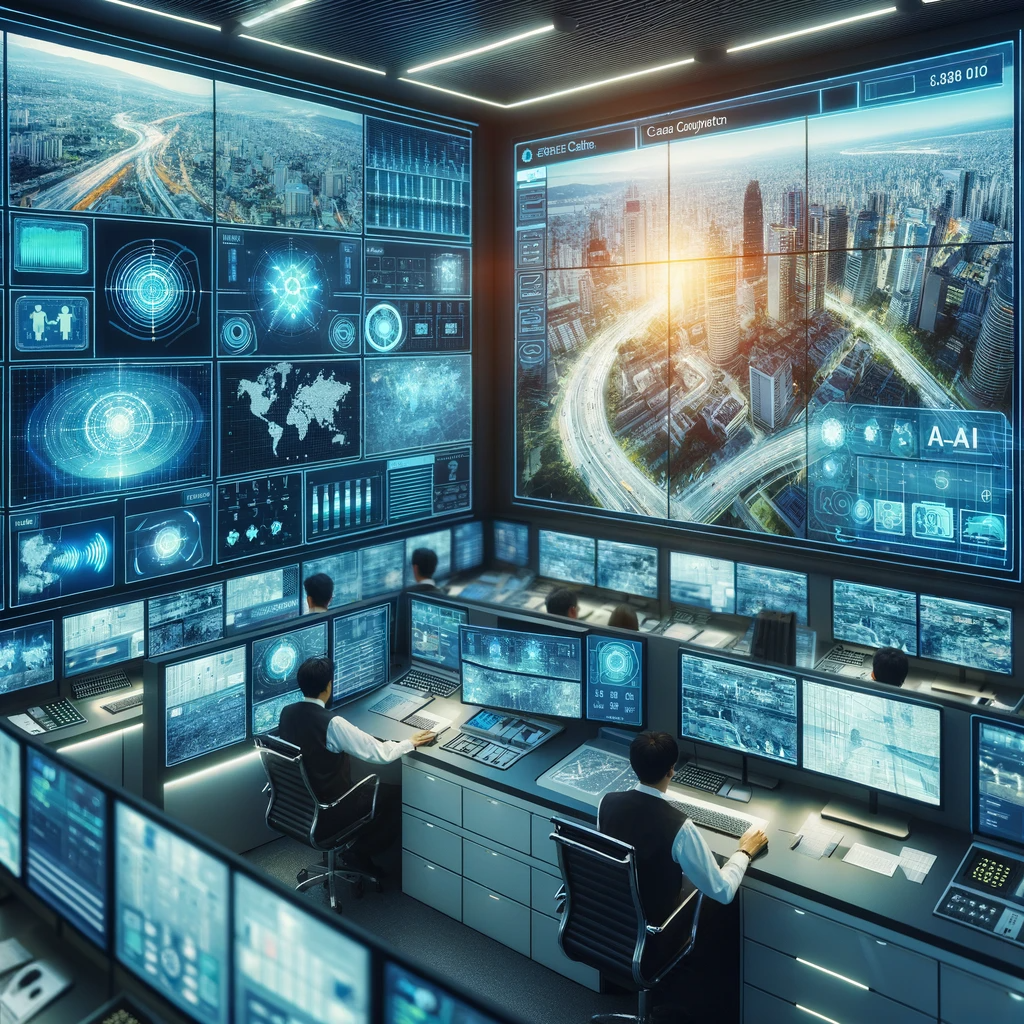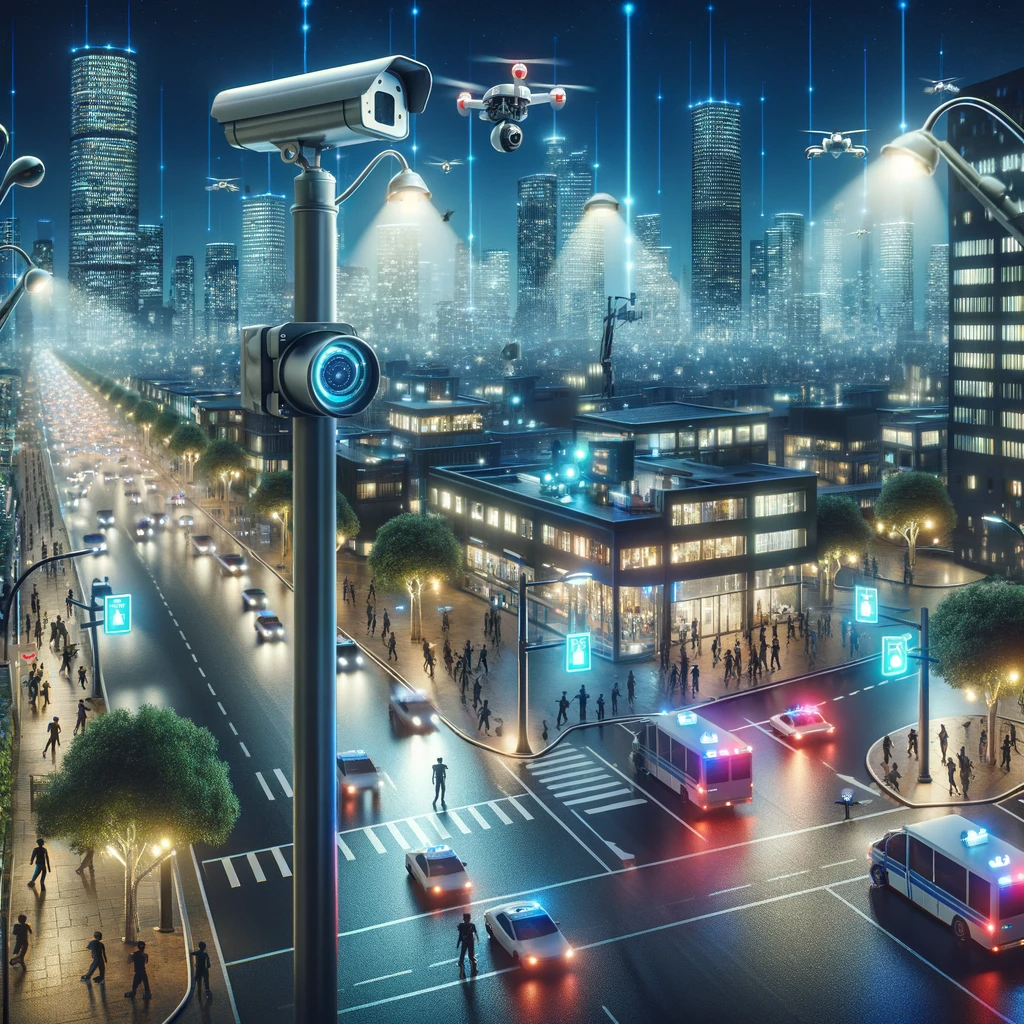In an era of rapid urbanization and technological advancement, cities around the world are undergoing a profound transformation into what we now refer to as “smart cities.” These urban hubs are harnessing the power of cutting-edge technology to enhance the quality of life for their residents, streamline urban operations, and create more sustainable environments. However, this transformation also brings about unique challenges, particularly in the realm of safety and security.
The safety and security of residents have always been paramount concerns for any city, and as cities become smarter, so too must their security measures evolve. With increasing population density, cyber threats, and the need for real-time responses to emergencies, the demand for innovative solutions has never been greater. This is where artificial intelligence (AI) steps in as a powerful ally.
This article explores the pivotal role of AI in enhancing the safety and security of smart cities. We will delve into various facets of urban security systems, focusing on public safety, emergency response, and crime prevention. From AI-powered surveillance systems to predictive policing, from intelligent emergency response to community engagement, AI is redefining how cities keep their residents safe and secure in the digital age.
Join us on a journey through the world of smart cities and AI-driven security solutions, where innovation meets urban resilience, and where technology plays a vital role in shaping the cities of tomorrow.
Understanding Smart Cities and Their Security Needs
Smart cities represent a paradigm shift in urban development, integrating technology into every aspect of city life. These cities are characterized by interconnected infrastructure, data-driven decision-making, and a commitment to sustainability. However, with this transformation come specific security challenges that demand innovative solutions.
The Role of AI in Public Safety

AI-Powered Surveillance Systems
AI is revolutionizing surveillance systems in smart cities. By harnessing the power of AI, cities can analyze vast amounts of video data in real-time, allowing for rapid threat detection and response. Advanced algorithms can identify unusual behaviors, potential threats, and even recognize faces, enhancing public safety and law enforcement efforts.
Predictive Policing
Predictive policing leverages AI to analyze historical crime data, identify patterns, and forecast potential criminal activity. By allocating resources more efficiently, law enforcement agencies can proactively address crime hotspots, reduce response times, and prevent criminal incidents. AI-driven predictive policing has proven effective in several cities, leading to safer neighborhoods.
AI-Driven Emergency Response
AI-Based Incident Detection
AI-enhanced incident detection systems utilize sensors and data analysis to identify accidents, natural disasters, and emergencies. These systems enable faster response times, ensuring the safety of residents during critical situations. AI can process data from various sources, including traffic cameras and environmental sensors, to provide real-time situational awareness to emergency responders.
Smart Traffic Management
During emergencies, such as natural disasters or accidents, AI can optimize traffic management to ensure the smooth flow of emergency vehicles. Smart traffic management systems use real-time data and AI algorithms to reroute traffic, prioritize emergency vehicles, and reduce congestion. This ensures that help reaches those in need quickly and efficiently.
Crime Prevention and Community Safety
AI-Powered Predictive Analytics
AI-driven predictive analytics can identify crime hotspots and trends by analyzing a city’s historical crime data. Law enforcement agencies can use this information to allocate resources strategically and implement targeted crime prevention strategies. AI enhances the efficiency of crime prevention efforts, leading to safer communities.
Community Engagement
AI also plays a role in fostering community engagement and reporting of safety concerns. Apps and platforms powered by AI enable citizens to report incidents, share information with law enforcement, and participate in community safety initiatives. These technologies empower residents to take an active role in their city’s security and collaborate with AI-enhanced security systems.
Ethical and Privacy Considerations
Data Privacy
As AI-driven security systems collect and analyze data, protecting citizen privacy becomes paramount. Cities must implement robust data privacy measures to ensure that personal information is safeguarded and used responsibly. Balancing the benefits of AI with individual privacy rights is an ongoing challenge.
Bias and Fairness
AI algorithms can inherit biases present in historical data, potentially leading to discriminatory outcomes. To maintain trust and fairness in smart city security applications, it is essential to address bias, promote transparency, and continually refine AI models to reduce disparities in policing and surveillance.
Future Prospects and Conclusion

Advancements in AI Technology
The future of AI in smart city security holds immense potential. Emerging technologies, such as 5G connectivity, edge computing, and more sophisticated AI algorithms, will continue to drive innovation in urban security systems. These advancements will enable cities to respond more effectively to evolving security challenges.
Conclusion
In conclusion, the integration of artificial intelligence into smart city security systems represents a significant leap forward in ensuring the safety and security of urban residents. From predictive policing to real-time incident detection and community engagement, AI enhances public safety and empowers cities to respond proactively to emergencies. However, ethical considerations and data privacy must remain at the forefront of these developments. As smart cities evolve, AI will continue to be a key ally in creating safer, more resilient urban environments where residents can thrive.
